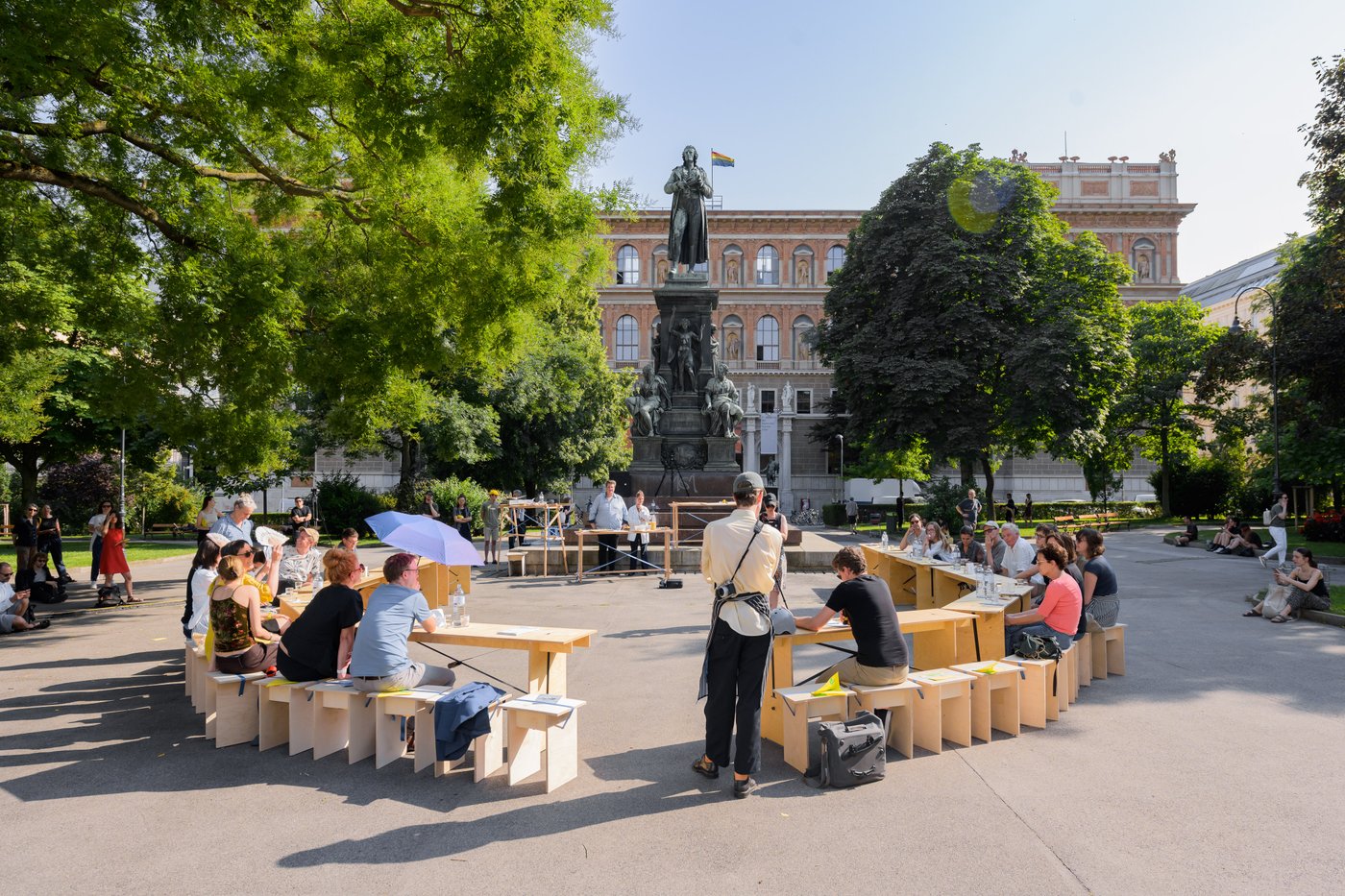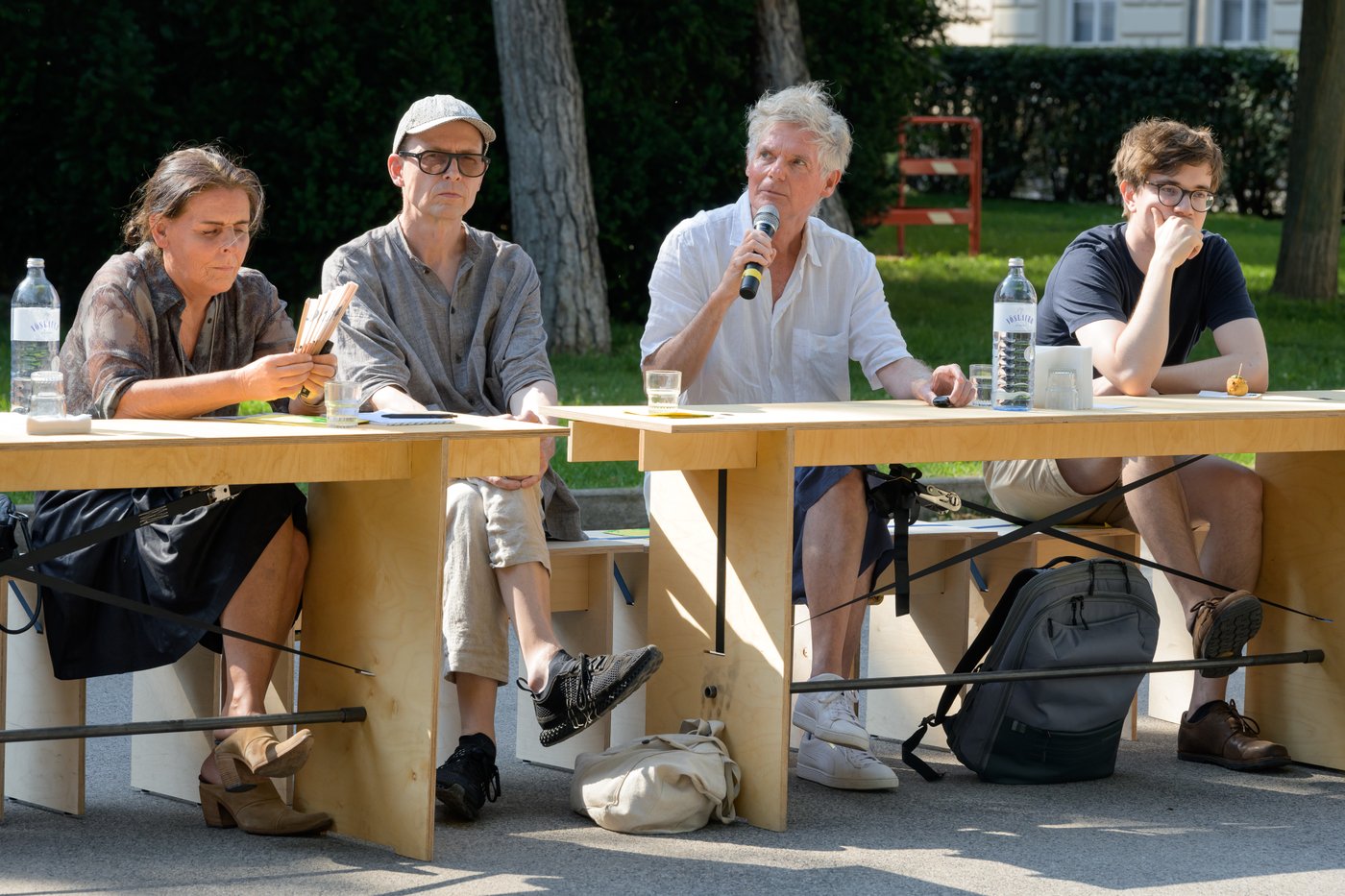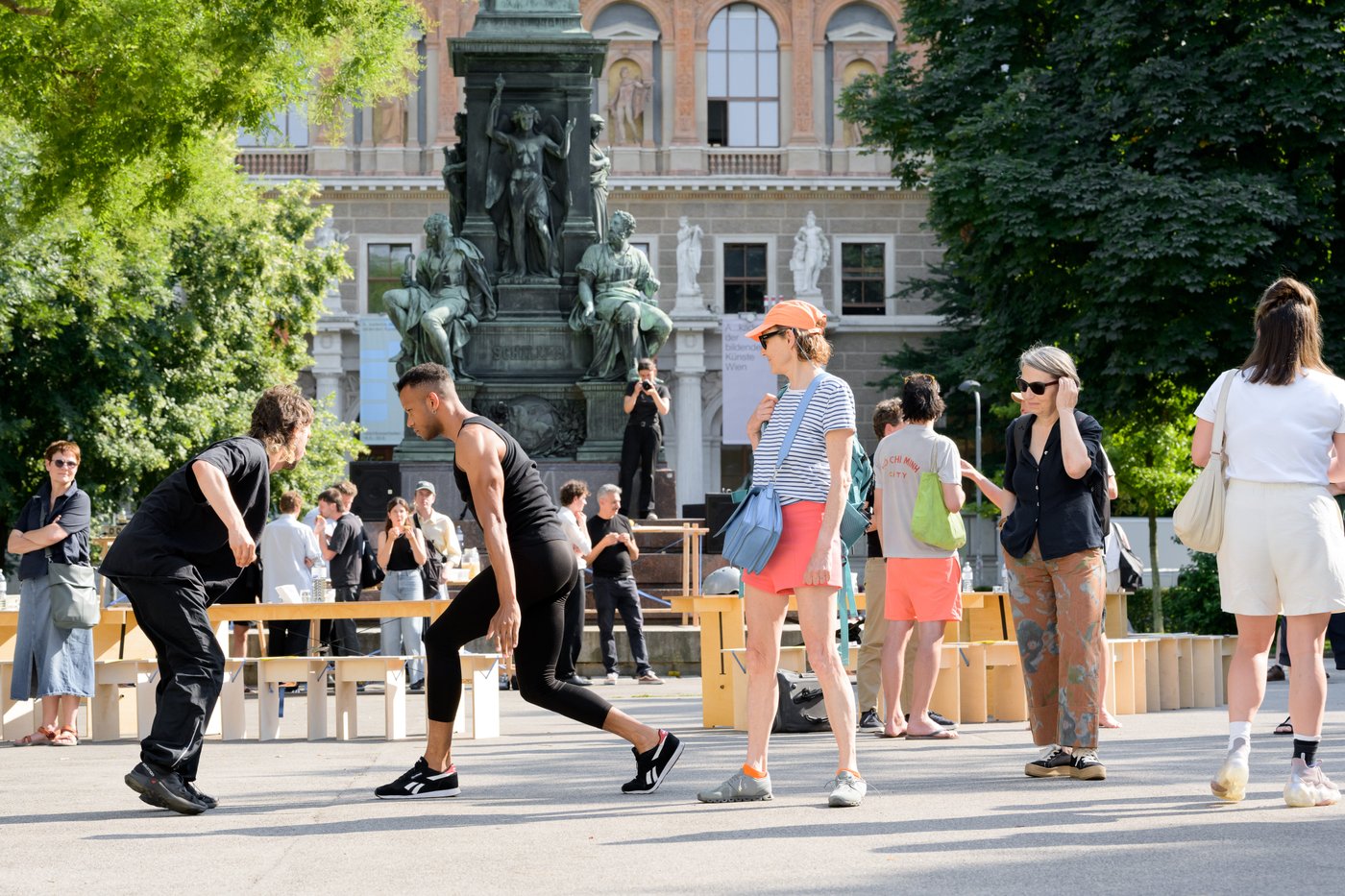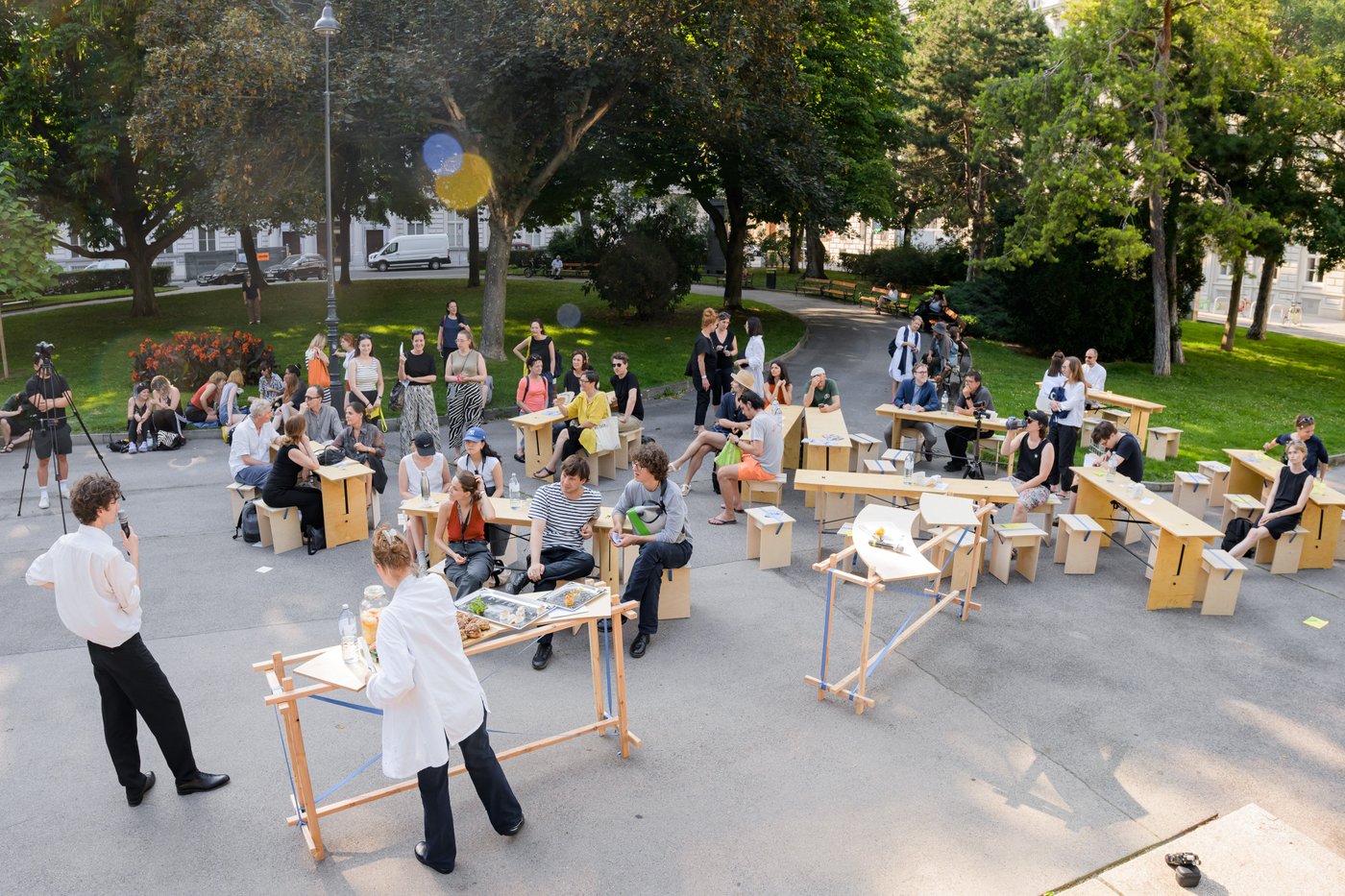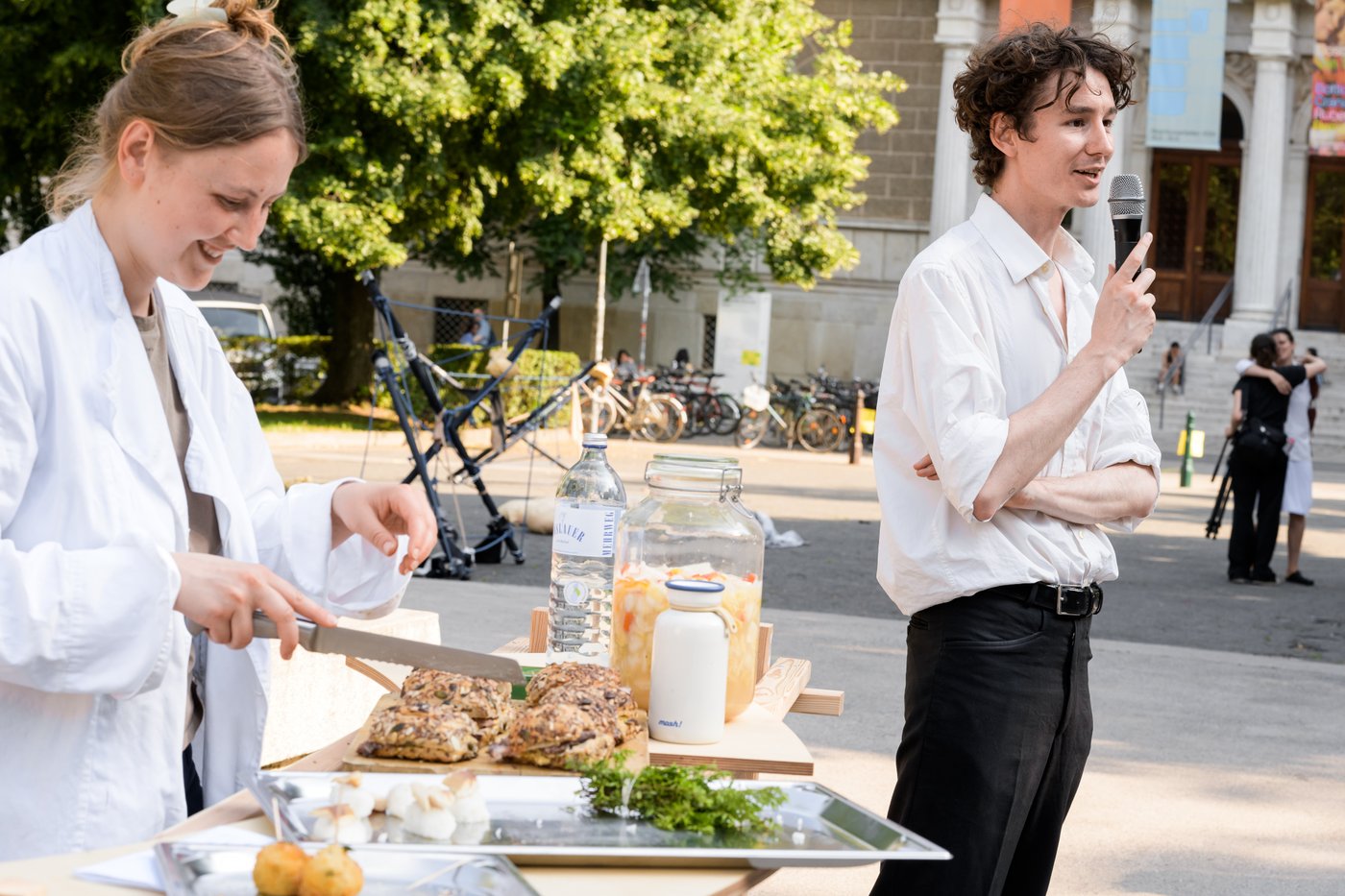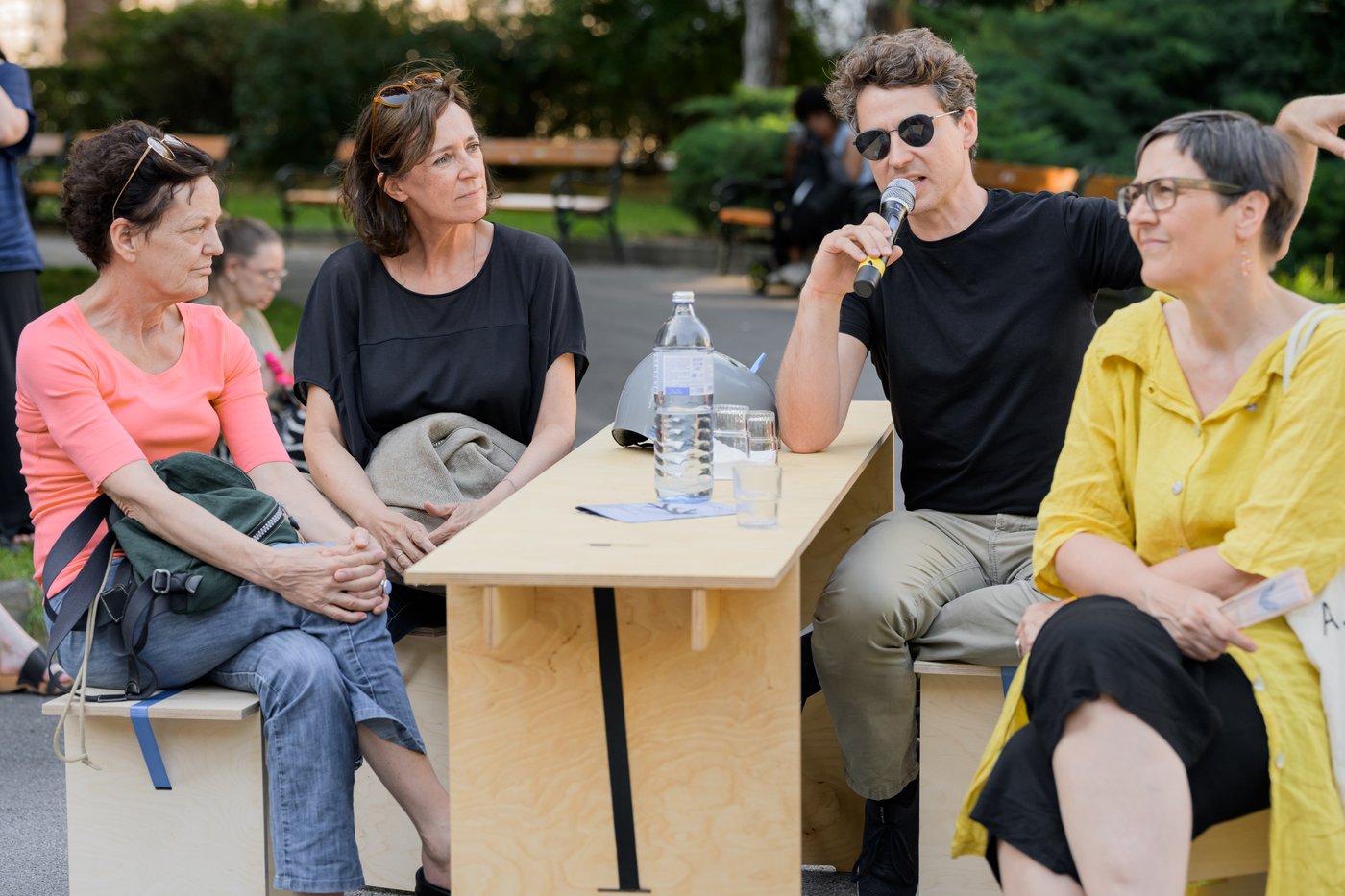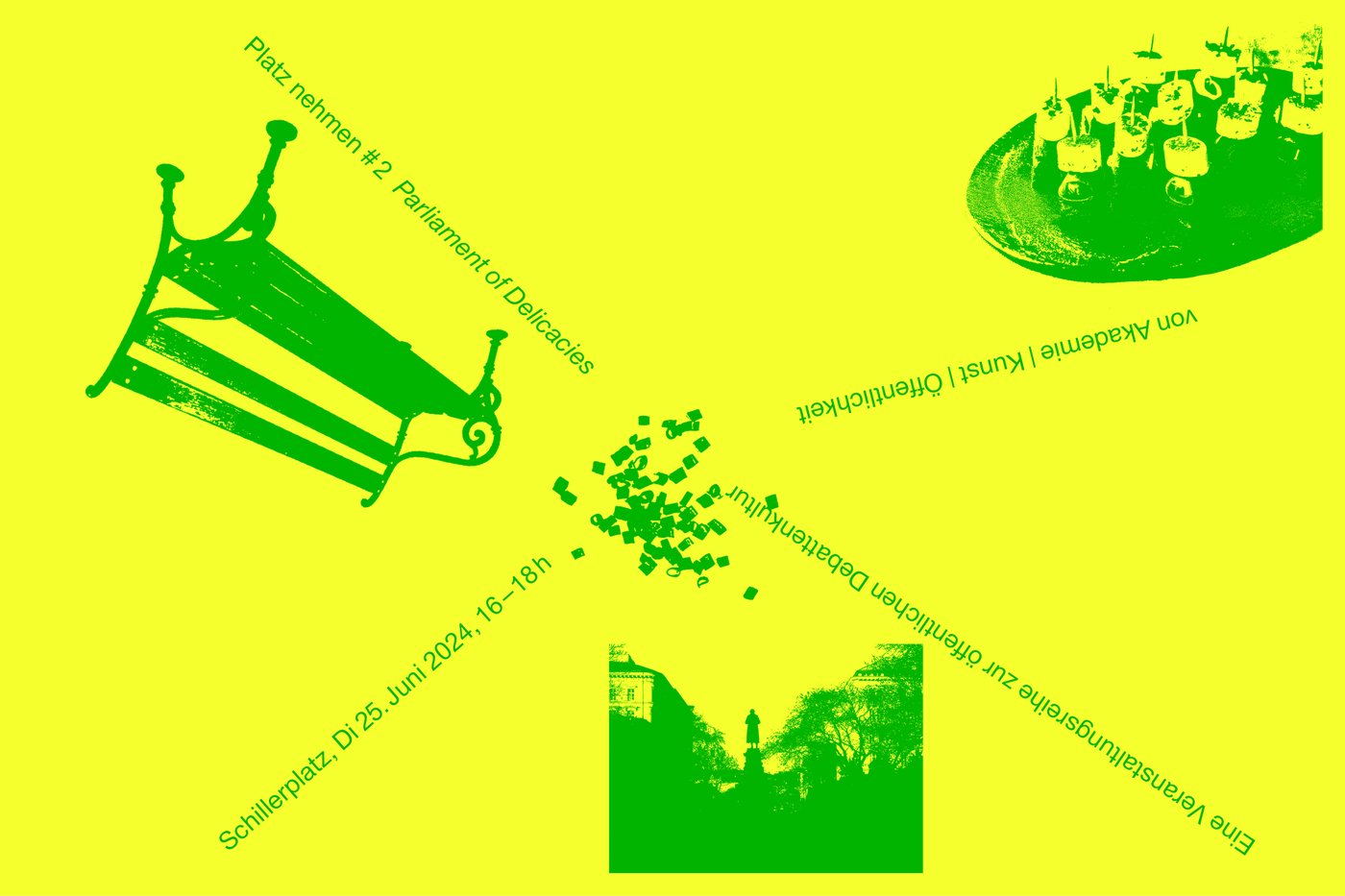Platz nehmen #2: Parliament of Delicacies
A series of events on the culture of public debate at Schillerplatz by Academy | Art | Public Sphere
Protest culture, actions in public space, "taking the streets" to make a message known have taken a large place in the public consciousness in the 21st century. What are the ambitions of such interventions in public space and what effect do they want to and can they achieve? Is there a Viennese context in which artistic activism takes place? How does this compare to other cities? How does a politically active society manifest and constitute itself in public space and which architectural-urban measures and settings can contribute to a sustainable open discourse in a city like Vienna?
In the second event of the event series Platz nehmen in front of the Academy at Schillerplatz, this time conceived and designed by a group of students from the Institute for Art and Architecture, a parliament will be installed as an architectural intervention in and with the public in order to discuss questions about art in public space in a free exchange between invited discussion partners, participants and the audience.
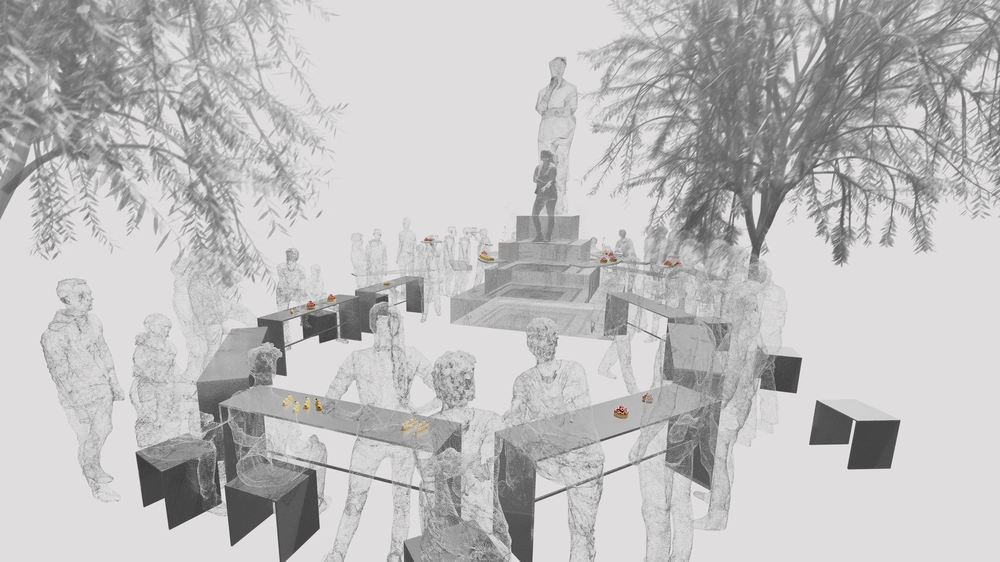
The architecture students are particularly interested in the interface between city and administration and the possibilities of shaping discourse through interventions in urban space, which they want to test on site with the Parliament of Delicacies. As a core and steering element between the program contributions, the distribution of small, delicious snacks is intended to create a culinary guideline for guiding the discourse. The event at Schillerplatz, which will take place in changing settings, will be complemented by an expansive artistic performance by Luiza Furtado. The aim of the event is to combine action and conversation.
After the first part of the Parliament of Delicacies, the performance Hybrid Viscera by Luiza Furtado, student of Fine Arts, will encourage participants to change place and direction at Schillerplatz. The performance is a sequence of an ongoing series by Luiza Furtado, which aims to discuss materiality and waste in the Anthropocene. Interwoven relations of upcycling and dance as community building practices take a central role in the narrative as six dancers interact with fabric membranes in urban space, in order to create a temporary fictional environment in which the performers guide the audience.
Concept and set design:
Alexander Groiss, Roxane Seckauer, Julian Schönborn and Maximilian Gallo, students at the Institute for Art and Architecture
Guests:
Johan Hartle, Rector Academy of Fine Arts Vienna
Mona Hahn, Professor Art and Intervention | Public Spaces
Daniela Herold, Institute for Art and Architecture
Elke Krasny, Professor Art and Education
Cornelia Offergeld, Curator KÖR Vienna
Stephan Hartmann, WieNeu +
Christian Teckert, Lecturer at the Institute for Art and Architecture
Andreas Spiegl, Lecturer, Institute of Art Theory and Cultural Studies
Performance
Concept: Luiza Furtado
Dancers: Francis Hirschl, Frederike Gordillo, Leandro Barros, Luiza Furtado, Miao Fangping, Thomas Vava
Music: Francis Hirschl
Documentation: Lily Zlotover
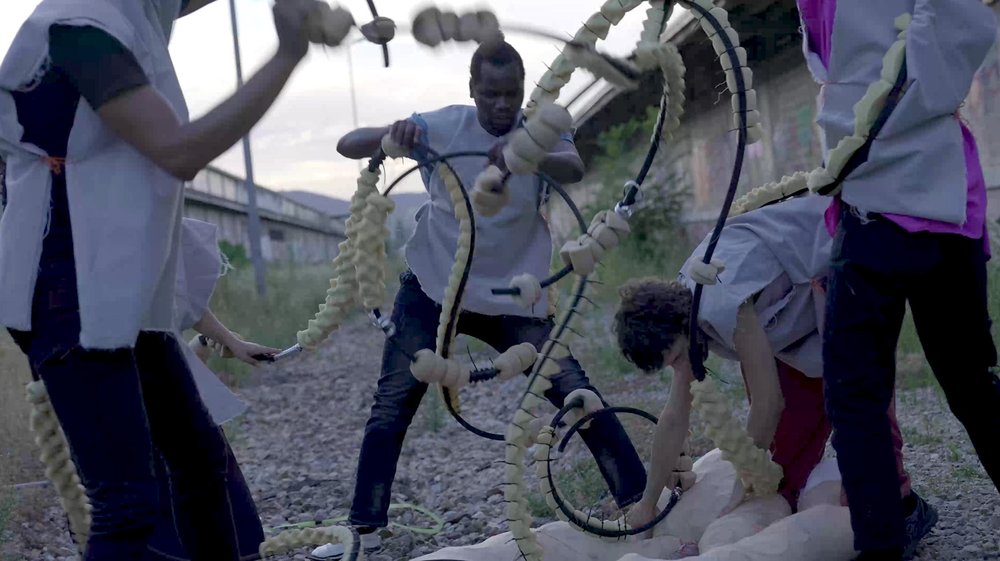
Hybrid Viscera (2024/2023) is an ongoing performance series by Luiza Furtado, which aims to discuss materiality and waste in the Anthropocene.
Interwoven relations of upcycling and dance as community building practices take a central role in the narrative as six dancers interact with fabric membranes in urban space.
This movement of bodies, threads a fictional space in which soft sculptures become prosthetic extensions of limbs. As the performers activate gadgets made with found materials such as rubber, metal and second-hand fabrics. Embodying both organic and inorganic components present in the city as material for choreography. The artist includes allegorical scenes of machine moves involved in the industrial making of several upcycled elements.
While presenting a sequence of metaphorical acts which assimilate the inner structures that hold a body together: the bones, cartilage and guts. With the outer ones, those framing it on the public space of Vienna: such as rails, fassades and foundations.
The piece plays with a temporary setting in which the performers role shifts in Schillerpark while leading the audience through space to draw together different mobility patterns.
Biographies (in alphabetical order)
Luiza Furtado, born in Florianopolis, an island in Brazil, lived in Rio de Janeiro for over 20 years, where she received her Bachelor's degree in Industrial Design from PUC University in 2021. She has been living in Austria for two years, where she studies in the Contextual Painting Department with Professor Ashley Hans Scheirl at the Academy of Fine Arts Vienna. Her performative works, which she describes as rituals of empowerment, are based on prosthetic experiments with upcycled textiles from a queerfeminist perspective.
Maximilian Gallo is an architectural designer who works between cultural studies and architectural practice. He communicates information and experience through publications, buildings and workshops. In his building practice - including for the Fanelsa studio in Berlin and Gerswalde and at BeAr architects in Bilbao - he aims to develop ecologically and energetically sensible solutions that mediate between spatial visions, contemporary and traditional building methods, between urban dwellings and rural surroundings. He holds a Bachelor of Arts in Cultural Studies from the University of Hildesheim and subsequently a Bachelor of Architecture from the Academy of Fine Arts in Vienna.
Alexander Johann Groiss, born in Austria in 1997, is currently completing his Master's degree in Architecture at the Academy of Fine Arts in Vienna, where he also obtained his Bachelor's degree. Alexander's work deals with the city, its inhabitants and their ways of life. His projects operate in the field of tension between the socio-political words of Vienna and the world, aiming to anticipate social developments and act as a showcase for society, with the intention of actual participation and impact. He has exhibited at the Venice Biennale and the Architekturzentrum Wien, among others.
Julian Schönborn is currently completing his bachelor's degree in architecture at the Academy of Fine Arts in Vienna. His studies combine his interest in design, but also in engineering professions. He began working outside the academic world at an early age. Among other things, he worked in various architecture firms and collectives. He is currently working on the design of social spaces with the tools of an architect. He is currently a member of the curriculum committee of the Institute of Art and Architecture, where he represents the students by helping to shape the teaching.
Roxane Milena Johanna Seckauer is a student of art and architecture at the Academy of Fine Arts Vienna. She holds a Bachelor's degree in Psychology from the University of Vienna and a Bachelor's degree in Architecture from the Academy. Among other things, she led a workshop at the European Architecture Assembly that explored the possibilities of public space and questioned the normative use of the commons by focusing on direct experience and immediate action on a small scale. Her work has been awarded prizes and exhibited at the Venice Biennale, the Architekturzentrum Wien and the digital dreams exhibition in London, among others.
